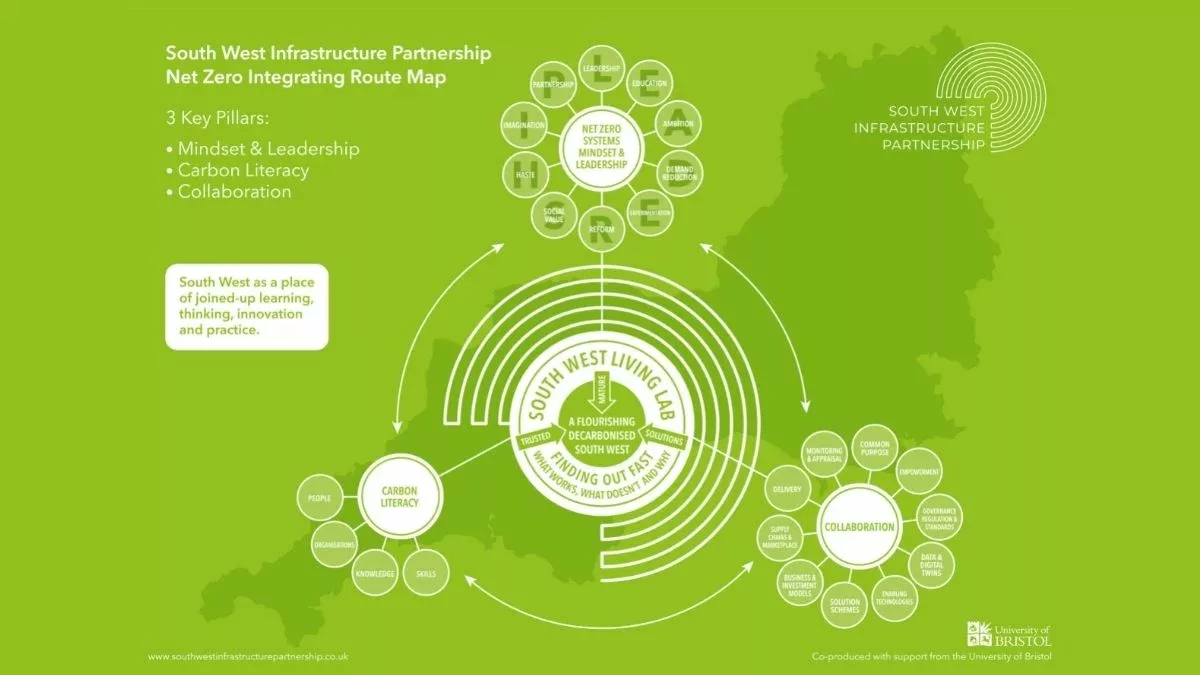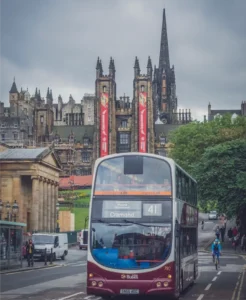Infrastructure engineers and professionals across the South West are being urged to embrace a ‘net-zero mindset’ to support decarbonisation in the region.
Without a new approach, the South West Infrastructure Partnership (SWIP) – a leadership organisation who work together to plan and develop infrastructure across the South West – is warning that the region will struggle to achieve net zero targets.
To support the new net-zero mindset, SWIP has developed an Integrating Net Zero Route Map , which sets out the key requirements needed to drive forward infrastructure decarbonisation.
SWIP created the route map together with more than 450 civil engineers and infrastructure professionals, following a series of dedicated online workshops between January and April 2021. The route mapping process was coordinated by the Department of Civil Engineering at the University of Bristol.
The route map highlights three key pillars needed to underpin a net zero mindset. These are:
- Leadership – to bring people together and determine the most effective options and strategies
- Carbon literacy – to enable people to fully understand the problem and how to measure it
- Collaboration – to speed up and streamline the way organisations and the public work together on net zero.
Peter Kydd, SWIP Chair, said: “During our co-production workshops, we identified many decarbonisation challenges amid much uncertainty, and very little coordination. Therefore, our route map has been developed to focus on joining up learning, best practice and innovation within the region’s infrastructure community and beyond. Our aim is to develop a common systems-thinking mindset to enable us all to deliver effectively on net zero.”
Andrew Page-Dove, Regional Director (South West), National Highways, who sits on the SWIP steering group, said: “Working with SWIP and others on the route map has been a real eye-opener. There are huge opportunities for us all to think about and change what we do but we can’t do anything on our own – we have to work together. Collaboration is the golden nugget here, helping us to realise that, as clients, not only can we act to reduce carbon, but we can also enable others to realise their potential.”
SWIP is now recommending the development of a ‘South West Collaboratory’ – a ‘living lab’ for the region. The partnership believes this could establish the South West as an area of expertise in joined up learning, thinking, innovation and practice. This could enable the regional infrastructure sector to identify what works, what doesn’t (and why) on decarbonisation.
Miranda Housden, ICE South West Regional Director, who acts as SWIP Secretary, said: “This ambitious project has brought together many brains – clients, contractors, consultants, academics and policy makers – all seeking to drive change. We have been blown away by the energy and commitment of those involved and recommend that everyone with a stake in the region’s infrastructure – from those at the very top to those entering the industry – download the route map and get involved in the region’s net zero transformation.”
SWIP was founded in 2017 by the Institution of Civil Engineers (ICE) South West to bring together regional infrastructure champions to discuss how the different sectors can work better together. Its steering group includes senior industry figures from Highways England, Network Rail, Bristol Port Company and the Environment Agency. The partnership has nearly 200 contributors who support its workshops, consultations and events.





















